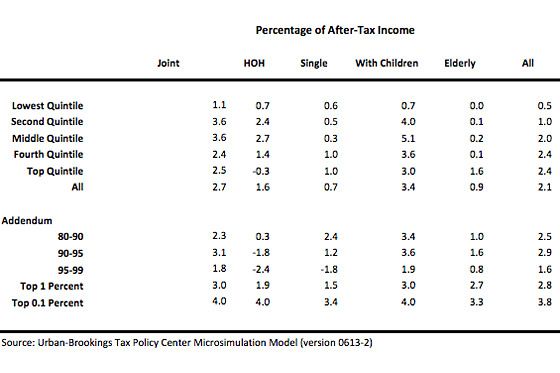
Last September, Senator Mike Lee unveiled a proposal to reform the tax code. Conservative reformers swooned — here, finally, yet again, was the policy seriousness the party had been waiting for. Reihan Salam praised the plan as “genuinely new thinking.” Ross Douthat called it a “noteworthy breakthrough” and hailed it in two other columns. Even the more skeptical Josh Barro, in a post headlined “FINALLY, A Republican tax plan that doesn’t suck,” concluded, “Unusually for Republican tax plans, his new plan cuts taxes for the middle class and finances that with a tax increase on the wealthy.”
Well, no. The Tax Policy Center has run the numbers, and it turns out Lee’s plan cuts taxes for the middle class and pays for it by cutting taxes even more for the rich. It’s basically just a big tax cut for everybody.
Lee’s plan would reduce tax revenue by about $2.4 trillion over a decade. The benefits are spread regressively, with the lowest-earning one fifth of taxpayers getting a 0.5 percent increase in total income, all the way up to a 3.8 percent increase in income for the richest 0.1 percent.

A $2.4 trillion tax cut is basically on the scale of a George W. Bush tax cut. It’s a lot of money. And that explains the popularity of Lee’s plan. It’s obviously easy to design a tax reform that threads the needle between the being friendly to needed middle-class voters and being friendly to needed upper-class donors if you have a couple trillion dollars to blow.
And it shows the essential problem with the more decent, less punitive strain of Republican policymaking: It’s unable to grapple with trade-offs in any serious way. And that’s why I have argued that the future of Republican reform will be to give up trying to take things away from the middle class, and probably also the poor, and go back to the George W. Bush–style fiscal policy of popular tax cuts plus popular spending with no effort to pay for anything.






























